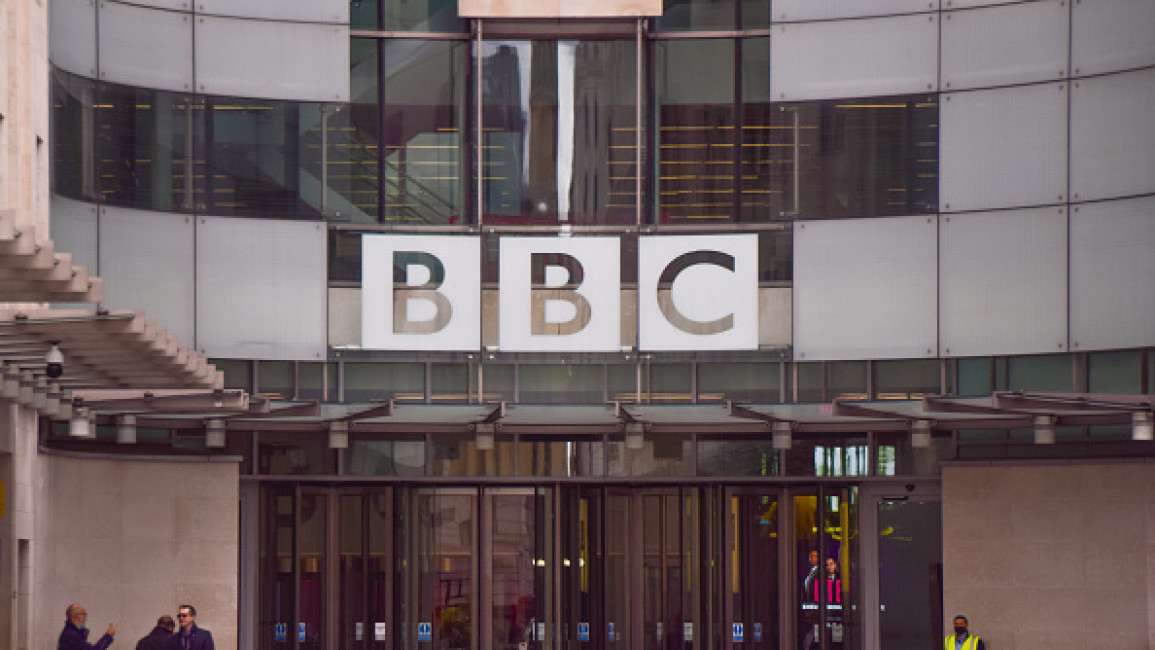BBC staff 'crying at work' over 'biased' reporting on Israel-Gaza war
BBC journalists are reportedly "crying in lavatories" over concerns that the broadcaster was treating Israeli lives "more worthy" than Palestinian ones amid coverage of Israel’s brutal war on Gaza, The Times reported on Wednesday.
Employees at the British broadcaster have accused it of being "too lenient" on Israel while "dehumanising Palestinian civilians."
Staff have reportedly taken time off, while freelancers have been "sacrificing their earnings" by not turning up to work amid distress.
"Many people are feeling disturbed," one source said, as cited by the UK newspaper.
Moreover, in an email shared with BBC News’ international staff, journalists have pointed out that words such as "massacre", "slaughter" and "atrocities" were frequently used in reference to the Hamas attack, but Israel’s actions weren't described using similar vocabulary or outrage.
Among those accusing the BBC of bias towards Israel is Beirut-based correspondent Rami Ruhayem, who expressed "the gravest possible concerns" over coverage of the ongoing war.
Ruhayem went on to state that BBC journalists often "go easy" on Israeli officials during interviews, allowing them "comfortable air time" to justify Tel Aviv’s atrocities in Gaza.
"Does this not raise the question of possible complicity of the BBC in incitement, dehumanisation and propaganda?" he said.
An insider told The Times that the BBC risked "tying itself in knots" after it conducted meetings with Palestinian, Arab and Jewish staff.
Israel launched its most ferocious bombardment in 70 years on the Gaza Strip on October 7, killing at least 7,028 Palestinians, including over 3,000 children, and wounding over 17,000 people as of Thursday.
Israel has gone on to bombard residential buildings, gathering places and hospitals, all while placing the territory under a complete siege, cutting off water, food and fuel supplies.
Israel’s brutal onslaught is being carried out as a retaliation for a surprise cross-border attack by Hama twenty days ago, which has killed more than 1,400 Israelis.
Tel Aviv has been accused by multiple rights groups and nations of committing war crimes in the blockaded Strip, following the killing of thousands of civilians.
This came as the BBC was embroiled in a number of controversies due to its framing of Israel’s war in Gaza.
The broadcaster landed itself in hot water after one of its presenters, Maryam Moshiri, described Palestinian solidarity protests in London as "pro-Hamas".
The broadcaster subsequently apologised for the report, calling it "poorly phrased and a misleading description of the demonstrations."
One of its employees, Tunis-based North Africa correspondent Bassam Bounneni, resigned from his position last week "for the sake of his professional conscience" amid further criticism of the BBC's reporting of the Israel-Gaza war.
Also last week, six reporters were taken off the air and investigated over social media posts and likes that were interpreted as pro-Palestinian.



